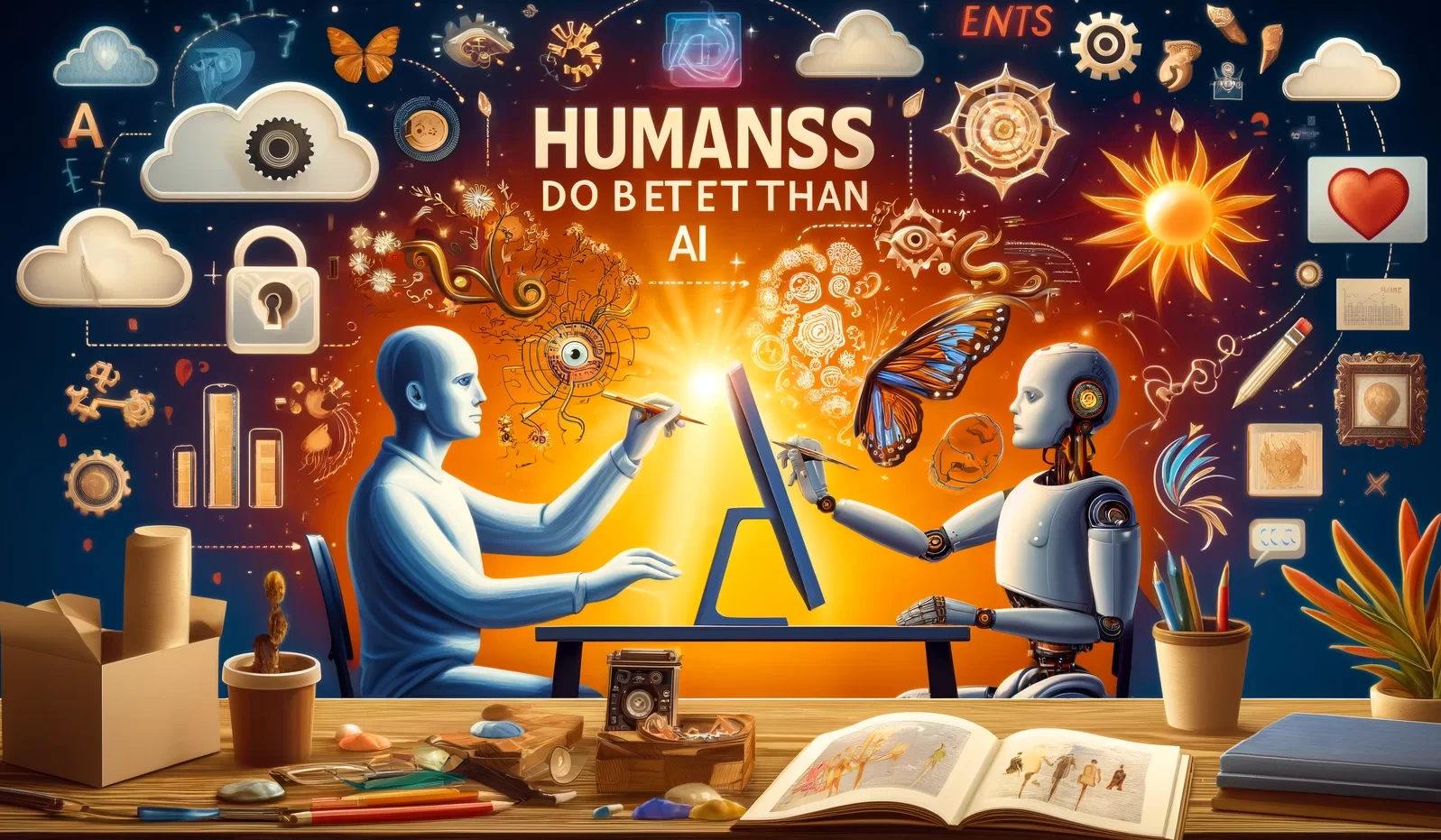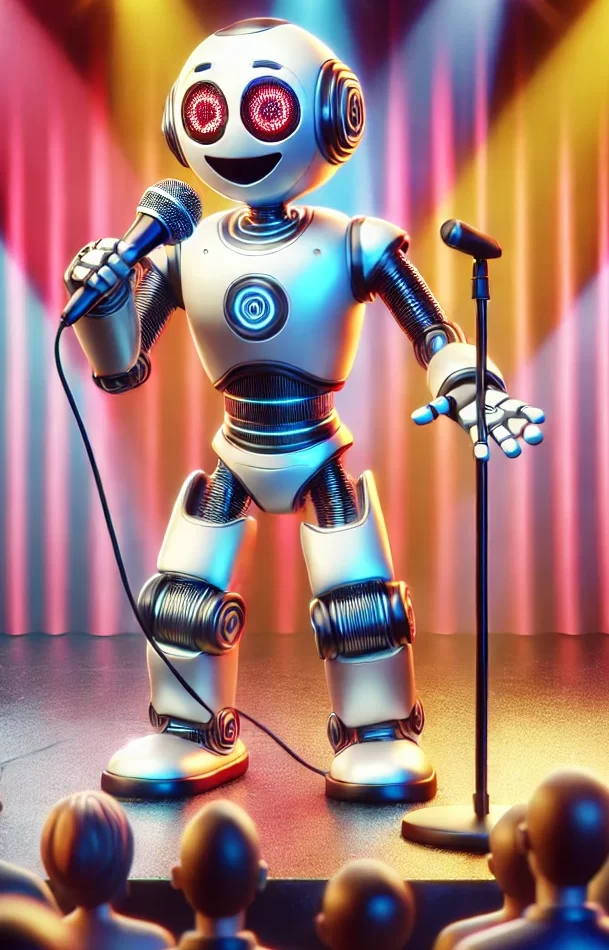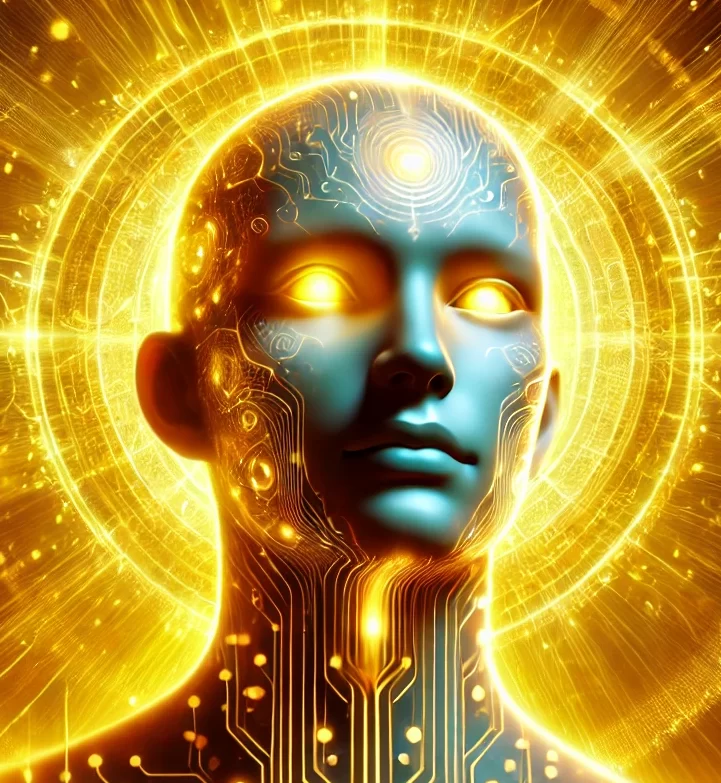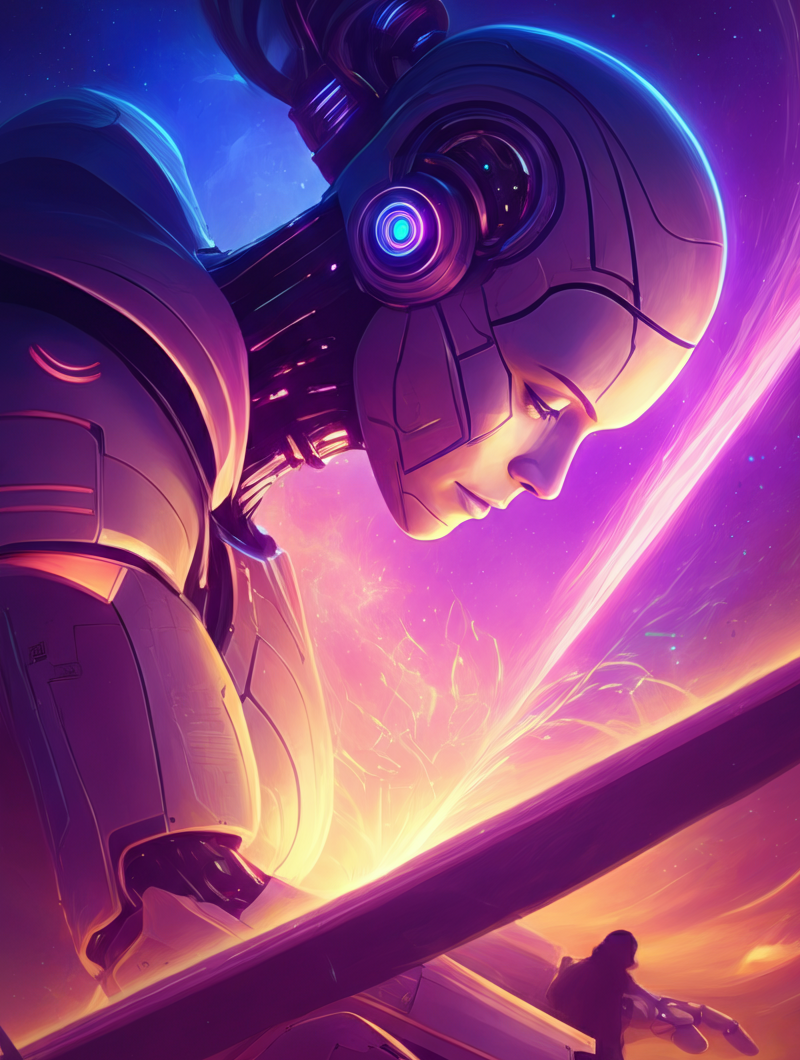The rise of artificial intelligence has sparked countless debates about the future of human labor and intelligence. While AI has made significant strides, there are still areas where humans hold a clear advantage. Let’s explore what humans still do better than AI.
1. Human Creativity
Humans have an unparalleled ability to create. From art and literature to music and film, human creativity is fueled by imagination, emotions, and experiences. While AI can generate content based on patterns and data, it lacks the innate spark of human creativity that makes each piece unique.

A study by Adobe found that 89% of creative professionals believe humans are essential in the creative process. Furthermore, the global creative industry, driven by human ingenuity, was valued at $2.25 trillion in 2020. This includes various sectors like visual arts, publishing, and entertainment, all of which thrive on human creativity and are areas where AI simply supplements rather than replaces human input.
2. Emotional Intelligence
Understanding and managing emotions is a domain where humans excel. Emotional intelligence involves empathy, social skills, and self-awareness – qualities that AI cannot replicate…still. Humans can read subtle emotional cues and respond appropriately, making them superior in roles involving customer service, counseling, and leadership.

According to a 2019 report by TalentSmart, emotional intelligence accounts for nearly 58% of job performance across various roles, indicating its critical importance in the workplace. Furthermore, the same report stated that 90% of top performers have high emotional intelligence. AI, despite advanced algorithms and machine learning, finds it challenging to understand human emotions and their context.
3. Complex Problem Solving
When it comes to solving complex problems, human intuition and experience play a crucial role. Humans can connect dots and think outside the box to find innovative solutions. AI, on the other hand, relies on algorithms and data, which may limit its ability to tackle unprecedented challenges.

A study conducted by the World Economic Forum projected that complex problem-solving will be the most crucial skill for employees by 2025. also, a survey by LinkedIn found that 60% of hiring managers consider problem-solving skills as one of the top criteria when hiring.
4. Ethical Decision Making
Ethics involves subjective judgment and moral values that vary across cultures and individuals. Humans can weigh the consequences of their actions based on a broad spectrum of ethical considerations. AI lacks this moral compass and can only follow predefined rules, making humans better suited for roles that require ethical decision-making.
A 2023 report by the Pew Research Center highlighted that 61% of experts believe that by 2030, AI will have advanced to effectively analyse complex ethical scenarios. However, these experts also expressed concerns about AI’s ability to match human ethical reasoning due to its inherent reliance on programmed algorithms. Moreover, a study by MIT Sloan Management Review showed that 47% of executives consider the ethical implications of AI as one of the primary obstacles to its broader adoption in business operations.

Humans, with their capacity for empathy and understanding of nuanced moral landscapes, are more adept at making decisions that are morally sound and socially responsible. This is particularly crucial in areas such as criminal justice, healthcare, and corporate governance, where ethical considerations can significantly impact outcomes. For instance, a survey by Deloitte found that 62% of consumers prefer interacting with human customer service agents rather than AI for inquiries involving ethical or sensitive issues, emphasizing the unique position of humans in ethical decision-making.
5. Adaptability
Humans are incredibly adaptable and can thrive in unpredictable environments. Whether it’s adjusting to new technologies or navigating unforeseen circumstances, humans can quickly learn, unlearn, and relearn. AI systems, while efficient, require extensive reprogramming to adapt to new tasks or environments. Human adaptability is perhaps best illustrated in their ability to respond to dynamic and complex real-world scenarios, such as natural disasters or sudden market shifts.

A study by the Harvard Business Review found that 71% of business leaders consider adaptability one of the most critical attributes for success in the modern workforce. Furthermore, research conducted by the University of Melbourne revealed that individuals with high adaptability skills are 24% more likely to be employed and obtain better job performance evaluations.
In contrast, AI systems’ adaptability is limited by their programming and data inputs, making it challenging for them to handle situations that fall outside of their defined parameters. For example, while AI can optimize supply chain logistics based on historical data. However, it may struggle to adapt when faced with unprecedented disruptions, such as a global pandemic. Thus, the ability of humans to instinctively adjust to new paradigms and think creatively under pressure makes them indispensable in roles requiring high levels of adaptability.
6. Building Relationships
Human connections are built on trust, empathy, and shared experiences. While AI can facilitate communication, it cannot replicate the depth and authenticity of human relationships. Humans excel in roles that require building rapport, such as sales, management, and education.

Authentic relationships are essential in many aspects of business and personal interactions. According to a study by Salesforce, 84% of customers believe that being treated like a person, not a number, is crucial to winning their business. In the field of sales, for example, the ability to understand customer needs, emotions, and feedback can significantly enhance the customer experience. Similarly, in management, leaders who build strong relationships with their teams often see higher engagement and productivity levels. A Gallup poll revealed that employees are 59% more likely to be engaged at work when their managers demonstrate genuine interest in their well-being. Moreover, in education, teachers who establish strong, empathetic relationships with students create a more conducive learning environment, promoting higher academic achievement and emotional growth.
7. Cultural Understanding
Humans possess an intricate understanding of cultural nuances that AI cannot match. Cultural context influences behavior, language, and social norms, which humans can interpret and respond to appropriately. This makes humans superior in roles involving diplomacy, international business, and cross-cultural communication.
Humans possess an intricate understanding of cultural nuances that AI cannot match. Cultural context influences behavior, language, and social norms, which humans can interpret and respond to appropriately. This makes humans superior in roles involving diplomacy, international business, and cross-cultural communication.

Knowing different cultures helps people navigate social situations better. For instance, a study conducted by the Boston Consulting Group found that companies with more diverse management teams have 19% higher revenue due to innovation. Furthermore, in international negotiations, diplomats who are adept at interpreting cultural signals are more likely to foster trust and cooperation, leading to more successful agreements.
In contrast, AI systems often struggle with the subtleties of cultural contexts, relying on predefined algorithms and data sets that may not capture the full spectrum of human diversity. According to a report by McKinsey & Company, 60% of AI implementation failures in multinational companies were attributed to inadequate consideration of cultural differences.
The ability to adapt communication styles and strategies based on cultural awareness is essential in today’s globalized world. Humans excel in this area, providing a competitive edge in diplomatic missions, international sales, and global marketing campaigns.
8. Intuition
Human intuition, often described as a “gut feeling,” is a powerful tool in decision-making. It combines experience, knowledge, and subconscious processing to arrive at conclusions quickly. AI lacks this intuitive capability and relies solely on data analysis, making humans more adept at making quick, informed decisions.
Intuition plays a critical role in many domains, particularly where rapid decision-making is important and data may be incomplete or ambiguous. For instance, in emergency medical situations, seasoned doctors often rely on their intuitive judgment to make life-saving decisions when time is of the essence. A study published in the Journal of Advanced Nursing (2016) found that physicians using their intuition coupled with clinical data were able to diagnose conditions with 20% higher accuracy than those solely relying on systematic approaches.

In the business world, executive leaders frequently leverage their intuition to guide strategic initiatives, navigate market uncertainties, and steer their companies towards success. According to a survey by the Economist Intelligence Unit, 62% of business leaders reported that intuition plays a significant role in their decision-making process, particularly when dealing with volatile or unpredictable market conditions.
Moreover, in creative industries such as film, art, and literature, intuition drives innovation and originality. A report by the National Endowment for the Arts found that creative professionals who trust their intuition are more likely to produce groundbreaking work and receive recognition for their unique contributions.
Overall, human intuition enhances decision-making across various fields, providing a unique advantage that AI, despite its analytical power, cannot replicate. The blend of experience, instinct, and rapid cognitive processing allows humans to navigate complex situations with a level of adeptness that is currently beyond the reach of artificial systems.
9. Original Thought
Humans have the ability to conceive original ideas and innovate. While AI can analyze patterns and optimize existing processes, it struggles with creating entirely new concepts. Human originality drives progress in fields such as science, technology, and the arts.
Original thought is the genesis of innovation and progress in various domains. Unlike AI, which heavily relies on existing data and algorithms to generate outputs, humans can conceptualize groundbreaking ideas that have no precedent. This creativity has fueled advancements throughout history. For example, the invention of the internet, which has revolutionized global communication, stemmed from the original ideas of visionary scientists like Tim Berners-Lee. Similarly, the field of medicine has benefited immensely from pioneering research and original thought, leading to life-saving vaccines and treatments.

According to Adobe, 78% of respondents believed that fostering creativity is crucial for the long-term success of their organization. In education, fostering original thought among students is essential for cultivating the next generation of innovators. According to the National Center for Education Statistics, schools that emphasize creative thinking and problem-solving in their curriculum witness a 20% improvement in student performance and engagement. This preparation is invaluable for students as they enter a workforce increasingly dependent on creative and original contributions.
The unique ability of humans to think outside the box and bring forth revolutionary ideas continues to distinguish us from AI. While AI can support and enhance human creativity by providing data-driven insights, the spark of original thought remains an exclusively human domain, propelling our society forward.
10. Mentorship and Teaching
Effective teaching and mentorship require a deep understanding of human behavior and the ability to inspire and motivate others. Humans can tailor their approach based on the individual needs and learning styles of their students. AI can assist in education but cannot replace the personalized guidance and encouragement provided by human mentors.
Mentorship and teaching are not just about transferring knowledge, but also about fostering a growth mindset and developing critical thinking skills. According to a study by Harvard Business Review, mentees are five times more likely to be promoted and receive a 50% higher salary increase when they have strong mentorship relationships.

Additionally, personalized teaching methods have been shown to significantly improve academic performance. Research from the Bill & Melinda Gates Foundation found that students who received tailored instruction from teachers exhibited a 30% improvement in their test scores compared to those who did not. Such personalized attention can adapt to a student’s unique pace and style of learning, something AI lacks the nuanced capability to fully replicate.
The emotional and psychological support provided by mentors and teachers is another crucial element. A survey conducted by the American Psychological Association revealed that 49% of students reported feeling more motivated and confident about their future when they had a supportive mentor.



